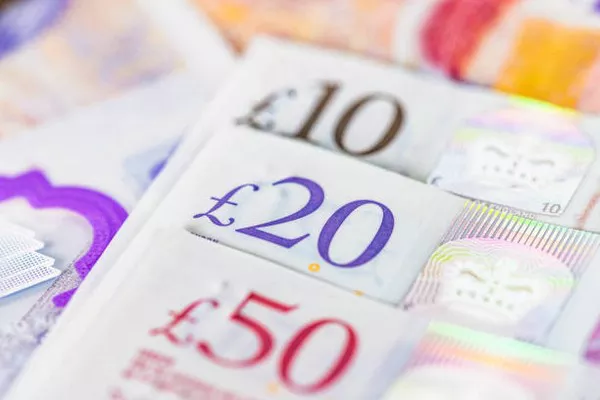Coins, as both currency and collectibles, hold significant historical and cultural value. Their preservation is of utmost importance to collectors, historians, and anyone interested in maintaining their physical integrity. One common method of cleaning coins involves the use of vinegar, a household staple known for its acidic properties. However, the question arises: does vinegar damage coins? This article delves into the effects of vinegar on coins, exploring the science behind its action, the potential risks, and the best practices for coin cleaning and preservation.
The Chemical Nature of Vinegar
Vinegar is primarily composed of acetic acid (CH₃COOH) and water. The concentration of acetic acid in household vinegar typically ranges from 4% to 7%. Acetic acid is a weak acid, but its effects can be significant over time, especially on certain metals. The acidity of vinegar allows it to dissolve mineral deposits, grease, and dirt, which is why it is often used as a cleaning agent. However, this same property can lead to the corrosion of metal surfaces, including those of coins.
Impact of Vinegar on Different Coin Materials
Coins are made from various metals and alloys, each reacting differently to acidic environments:
Copper Coins: Copper and its alloys, such as bronze and brass, are particularly susceptible to vinegar’s effects. When exposed to acetic acid, copper undergoes a redox reaction, resulting in the formation of copper acetate, a greenish-blue compound. This reaction not only removes the patina but can also cause pitting and surface damage over time. Prolonged exposure can lead to significant deterioration.
Silver Coins: Silver is relatively resistant to weak acids like acetic acid. However, repeated or prolonged exposure to vinegar can lead to tarnishing. Tarnish is a layer of corrosion that forms when silver reacts with sulfur-containing substances in the air. Vinegar can accelerate this process by cleaning off the tarnish temporarily but leaving the silver surface more vulnerable to future corrosion.
Nickel Coins: Nickel is more resistant to acid attack compared to copper. However, coins containing a mixture of nickel and other metals, such as nickel-copper alloys, can still experience corrosion, especially at the junctions of different metals.
Modern Clad Coins: Many contemporary coins are made from a combination of metals, such as copper-nickel cladding over a core of cheaper metals. These composite coins can be particularly vulnerable to acid damage at the interfaces between different materials, leading to delamination and structural weakening.
Experimental Evidence
Several experiments have been conducted to understand the impact of vinegar on coins:
Short-term Exposure: When coins are soaked in vinegar for a short period, such as a few minutes to an hour, the immediate effect is often the removal of dirt and surface tarnish. The coins appear cleaner and shinier, which may seem beneficial initially.
Long-term Exposure: Extended exposure, such as soaking coins for several hours or days, reveals more detrimental effects. Copper coins exhibit significant corrosion, with the development of pitting and a greenish-blue layer of copper acetate. Silver coins may show increased tarnishing and surface dulling. Composite coins may start to delaminate, revealing the underlying metal layers.
Controlled Experiments: In controlled laboratory settings, coins subjected to vinegar are carefully weighed and examined before and after exposure. These studies consistently show a loss of metal mass, indicating that even short-term cleaning can lead to measurable erosion, particularly for copper-based coins.
Best Practices for Cleaning Coins
Given the potential risks of using vinegar, collectors and numismatists are advised to follow best practices for cleaning coins:
Avoid Acids: For valuable or historical coins, avoid using acidic substances like vinegar. Even mild acids can cause irreversible damage over time.
Use Mild Detergents: For general cleaning, use mild, non-abrasive soaps and distilled water. Gently scrubbing with a soft brush can help remove dirt without damaging the coin’s surface.
Professional Cleaning: For coins of significant value, consider consulting a professional conservator. They have the expertise and tools to clean coins safely without causing damage.
Proper Storage: Preventive care is crucial. Store coins in a dry, stable environment with low humidity. Use archival-quality holders and avoid materials that can off-gas harmful chemicals.
Patina Preservation: The natural patina on coins, especially those made from copper and bronze, is often desirable as it forms a protective layer. Removing it can reduce the coin’s value and make it more susceptible to future corrosion.
Alternatives to Vinegar
For those who still wish to clean their coins at home but are wary of vinegar, several safer alternatives exist:
Distilled Water: Soaking coins in distilled water can help loosen dirt and debris without the risk of acid damage. Use a soft brush to gently clean the coin after soaking.
Baking Soda Paste: A paste made from baking soda and water can be used to gently clean coins. The mildly abrasive nature of baking soda helps remove dirt without causing significant scratches or corrosion.
Olive Oil: Olive oil can be used for long-term soaking to loosen dirt and encrustations. After soaking, the coin can be gently brushed to remove the loosened debris.
Commercial Coin Cleaners: Several commercial coin cleaning solutions are designed specifically for different types of coins. These products are formulated to clean without damaging the metal and often come with specific instructions for safe use.
See Also Why Has the Pound Become So Weak?
Conclusion
While vinegar is an accessible and effective household cleaner, its use on coins can lead to irreversible damage, particularly for copper-based and composite coins. The acetic acid in vinegar can cause corrosion, pitting, and structural weakening, undermining the coin’s value and historical significance. Coin collectors and enthusiasts should consider safer alternatives and follow best practices for coin cleaning and preservation to ensure their collections remain intact for future generations.
Proper care and maintenance, combined with a careful approach to cleaning, can help preserve the beauty and historical value of coins. By understanding the risks associated with vinegar and opting for gentler cleaning methods, collectors can safeguard their treasures and continue to enjoy the rich heritage they represent.


